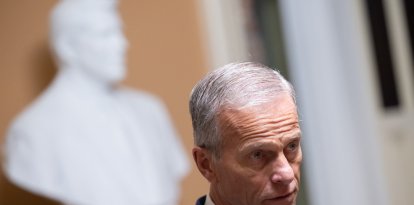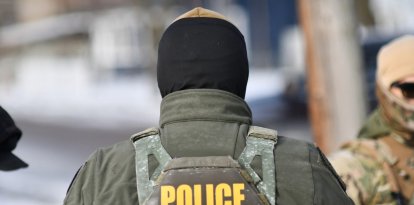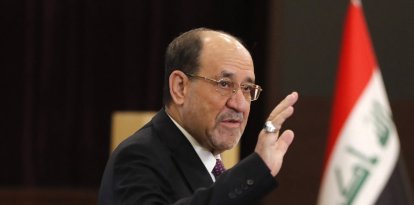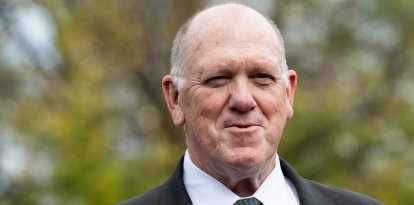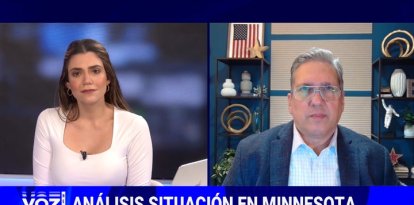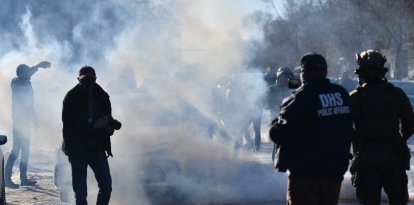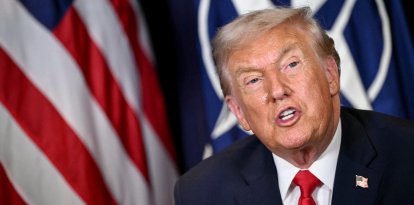End of Biden-Harris humanitarian parole program is a ‘smokescreen’ ahead of the election, Republicans say
The administration announced a month before the election that it will not extend the program it created two years ago to facilitate the entry of Venezuelans, Cubans, Nicaraguans and Haitians.

Migrants crossing the Rio Grande
Donald Trump makes a proposal; Kamala Harris copies it. Republicans have been pointing out this tactic by the vice president ever since she entered the campaign, with issues such as eliminating taxes on tips and toughening border policy. The administration just gave them more material: days after the Republican candidate's promise to revoke a special permit for Haitian immigrants, the Biden-Harris administration announced that it will not extend the term of a temporary stay permit called Humanitarian Conditional Release for Nationals of Cuba, Haiti, Nicaragua and Venezuela (CHNV).
The program allows nationals of those countries to legally enter the United States, with a series of conditions such as having a sponsor on U.S. soil. The government created it in 2022, at first only for Venezuelans. The following year it was extended to Cubans, Nicaraguans and Haitians. After suspending it in August because of suspicions of fraud, it resumed operations in September. However, on Friday, the administration informed that upon expiration of the two-year period, those who have not applied for another authorization will lose the permit to stay.
Until the end of August, some 530,000 people entered the country thanks to the CHNV. By nationalities, they are about 110,000 Cubans, 210,000 Haitians, 93,000 Nicaraguans and 117,000 Venezuelans.

Society
More than 19,000 illegal immigrants have been apprehended at the northern border, more than the past 17 years combined
Verónica Silveri Pazos
'Another smokescreen'
The House Homeland Security Committee labeled the measure as yet "another optics smokescreen." When the administration first reported that it would not extend the permit to Venezuelans, before announcing that the same would be true for Cubans, Nicaraguans and Haitians, Republican committee members rushed to clarify that those who previously enjoyed this measure could seek other avenues to stay: "They will likely apply for asylum, Temporary Protected Status, or, given ICE's low enforcement rates under this administration, simply not be priorities for removal."
Officials themselves acknowledge that repealing the policy is unlikely to result in deportations. One official with knowledge of the program even acknowledged to The Washington Post that the "small number of people" who do stand to lose their parole could still stay for years while "backlogged immigration courts" process their cases.
Government officials defend that the deadline was announced at the very time the program was created, and that it met its goal: to reduce illegal entries across the southern border of immigrants of those four nationalities. Critics charge, however, that total entries have increased, and that if fluctuations have been seen in that number, it is because the program allows citizens to enter the country by commercial flights, so they do not need to make the dangerous journey across the U.S.-Mexico border.
"[The Biden-Harris] Administration should have foreseen this," said Emilio Gonzalez, former director of U.S. Citizenship and Immigration Services (USCIS). The administration, he argued, created a "dubious" program to reduce the alarming figures recorded due to the border crisis. "Now, time’s up and they’re not leaving."
Gonzalez also charged that the measure was simply an attempt to "appear tough on immigration before an election." He assured, however, that most of these immigrants will find a way to stay in the country since "[Biden and Harris] gave them 2 years to figure out how to stay" and that they will make the "backlog" of asylum processing even worse.
















